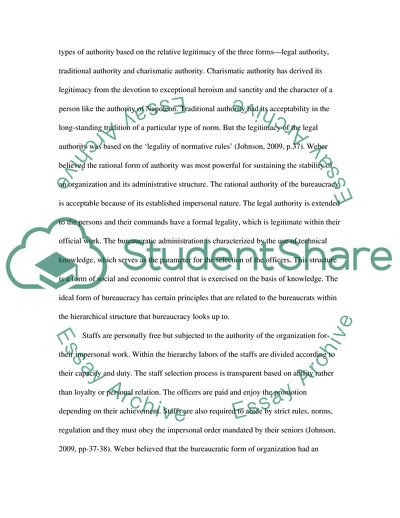Cite this document
(Webers Bureaucracy Style in Contemporary Society Essay, n.d.)
Webers Bureaucracy Style in Contemporary Society Essay. https://studentshare.org/sociology/1741175-to-what-extent-is-webers-ideal-type-of-bureaucracy-appropriate-in-contemporary-society
Webers Bureaucracy Style in Contemporary Society Essay. https://studentshare.org/sociology/1741175-to-what-extent-is-webers-ideal-type-of-bureaucracy-appropriate-in-contemporary-society
(Webers Bureaucracy Style in Contemporary Society Essay)
Webers Bureaucracy Style in Contemporary Society Essay. https://studentshare.org/sociology/1741175-to-what-extent-is-webers-ideal-type-of-bureaucracy-appropriate-in-contemporary-society.
Webers Bureaucracy Style in Contemporary Society Essay. https://studentshare.org/sociology/1741175-to-what-extent-is-webers-ideal-type-of-bureaucracy-appropriate-in-contemporary-society.
“Webers Bureaucracy Style in Contemporary Society Essay”. https://studentshare.org/sociology/1741175-to-what-extent-is-webers-ideal-type-of-bureaucracy-appropriate-in-contemporary-society.


